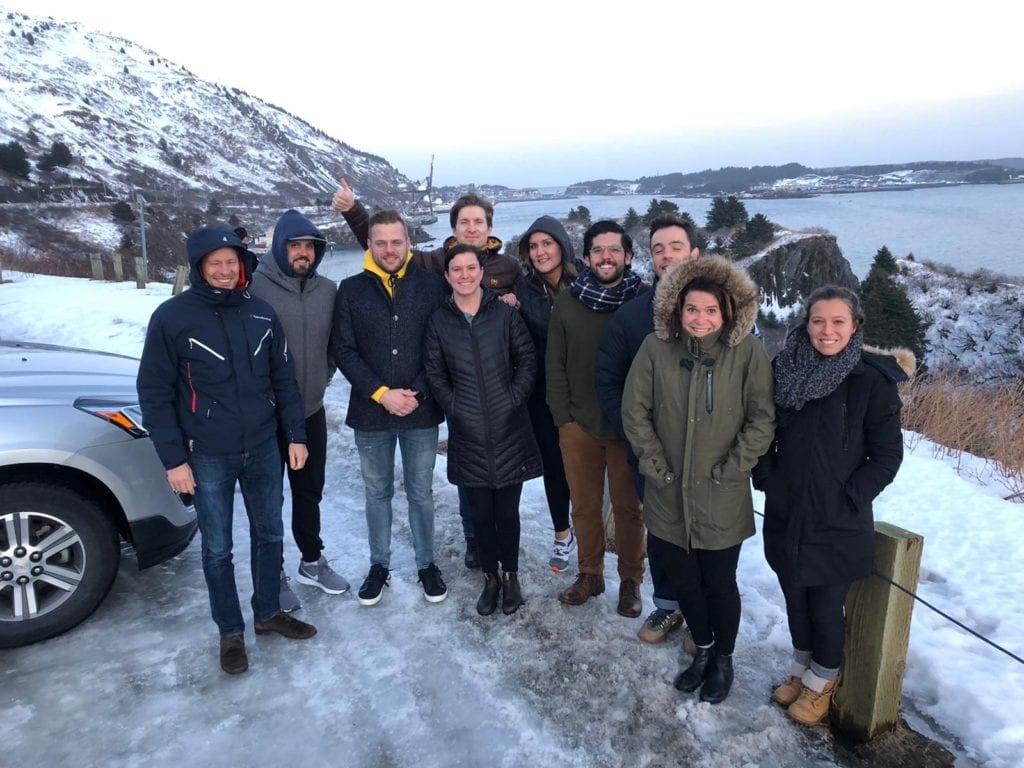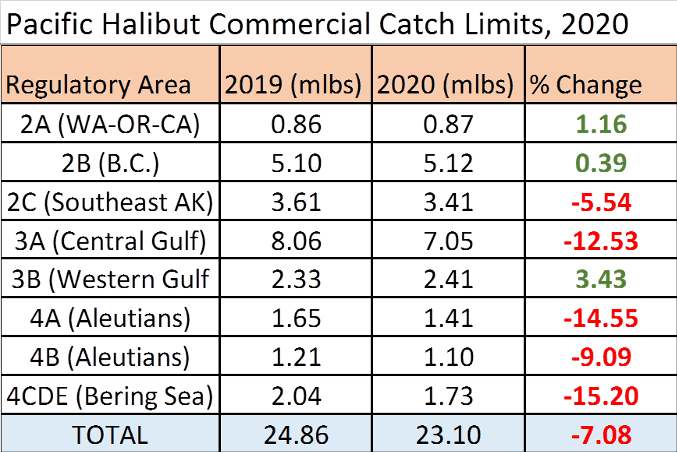
Alaska lawmakers are making fast work of several fish bills that have wide support from Alaska’s fishermen.
“I was anticipating a somewhat slow start, but they’re organized and they’re diving right into these issues and taking these bills up. And so, there’s lots of opportunities to participate,” said Frances Leach, executive director of United Fishermen of Alaska.
The bill (HB 35) that would resolve a conflict of interest fix at the state Board of Fisheries has been moving through committee hearings in Juneau and could finally be settled after a 14-year push.
“One of the reasons they’re chosen for that board is they may have a regional expertise, or they may have a user group expertise. So, we want them to be able to not vote, but participate and lend that expertise in deliberations to provide clarification to other board members who may not be as familiar with that region or fishery,” Leach said.
Another fast-moving measure (HB 85 and SB 145) aims to give boat owners a break from having to register it in person at a Department of Motor Vehicles. It was part of a well-intentioned Derelict Vessels Act whose ill-timed roll out last year by the Department of Administration created chaos among commercial and sport boat owners who were breaking a new law they didn’t even know about.
UFA supports the concept of the act which is aimed at identifying owners of abandoned boats, “but we are really pushing for this exemption because we already register our boats through the state Commercial Fisheries Entry Commission and they have all the details that would be going to the DMV because they’re both state managed data bases. So, it’s kind of like reinventing the wheel and just causing more work,” Leach said.
A bill that would allow Alaskans to transport live crab (HB 203) also is moving its way through the legislative process. Live crab is the most lucrative market and the bill has UFA’s strong backing.
“As the statutes currently stand, we’re not able to transport red king crab, Tanner crab and Dungeness live via ground. This bill would make it so that could happen, and it would open up some new avenues, I believe,” Leach explained.
UFA also strongly backs bills supporting Alaska’s mariculture industry and a sound commercial fisheries budget.
Other fishery related bills in the legislative pipeline include providing product development tax credits for cod and pollock (SB 130) and a push for a personal use priority above all other users (SB 99). Another measure that is resurfacing is HB 199 which seeks to create “rehabilitation permits” to allow transfer of fish eggs or fry from waters in one locale or region to enhance habitat in waters elsewhere, to remove anadromous or freshwater finfish from water of the state.
Leach said UFA will solidify its positions on more fish bills at the annual meeting Feb. 25-27 in Juneau. United Fishermen of Alaska is the nation’s largest fishing trade group with 35 member groups, from small skiff fisheries to the largest at-sea processors.
Halibut dips
As expected, catches of Pacific halibut will be down seven percent this year due to declining stocks. Alaska’s share of the 20.3-million-pound total catch is 17.11 million pounds. The halibut fishery will open on March 14 and close on Nov. 15.
Below is the breakdown of catches for 2020 compared to 2019, in millions of pounds.

Table courtesy of Alaska Boats and Permits, Homer
Future fish buyers
A “Next Generation” of foreign seafood buyers is set for a whirlwind visit to the working waterfront of Kodiak, the nation’s No. 3 fishing port. After touching down in Seattle, eight under 40 visitors from Ukraine, France, Germany, the Netherlands and Mexico will spend two full days this week in Kodiak to meet with fishery managers, tour four big processing plants and go out on a few boats.
“The goal is to show them all parts of the Alaska seafood story from harvesting, processing, sustainable management, everything,” said Alice Ottoson-McKeen, international marketing specialist at the Alaska Seafood Marketing Institute who organized the millennial trade mission. “There’s really no better way to show off the wonders of Alaska than in person and for people to see it up close with their own eyes.”
ASMI has strong relationships with buyers around the world who have long opted for Alaska seafood over other choices; this mission aims to build similar strong connections with the upcoming generation, she said.
Two years ago, ASMI hosted a similar mission and brought a group of seven European seafood buyers to Dutch Harbor in February for four days.
“Our goal when we bring these missions in is to showcase and impress upon people that Alaska seafood really is the things that we advertise in our taglines — it is wild, it’s natural, it’s sustainable,” she explained.
Why bring all these visitors to Alaska in the middle of winter?
“Alaska fisheries are open year-round, and just because it’s icy and it’s cold, that doesn’t mean that our fishermen aren’t out fishing,” Ottoson-McKeen said. “They get to really understand the hard work that goes into bringing Alaska seafood to market. I think that really reinforces that Alaska seafood is wild, and it’s totally natural. And it also allows us to showcase products that we wouldn’t necessarily get to see in the summer.”
Grants give back
The Alaskan Leader Foundation is accepting applications from non-profits and projects for its annual grant giveaways in Kodiak and Bristol Bay. Funding typically goes to programs such as food banks, shelters, educational and youth programs, museums, and recycling efforts.
Alaskan Leader Foundation was founded in 2000 by six Kodiak fishing families and was joined in 2007 by the Bristol Bay Economic Development Foundation. Deadline to apply is Feb. 28. For an application, contact Linda Kozak at 907-539-5585 or lindakozak@gmail.com.
Fish watch
Winter sees a wide array of Alaska fisheries out on the water with more to come.
Cod and a big mix of whitefish kicked off the year in the Bering Sea and in many parts of the Gulf.
Alaska pollock, the world’s largest food fishery, opened on Jan. 20 in the Bering Sea with a 3-billion-pound harvest. Smaller pollock catches will come out of the Gulf (250 million pounds) and at Prince William Sound (5 million pounds).
Boats are targeting black rockfish in Southeast, and at Kodiak, Chignik, the Alaska Peninsula and along the Aleutians. Lingcod also is open in Southeast (856,000 pounds).
Bering Sea crabbers are still out on the grounds pulling up snow crab. This season’s catch was boosted to nearly 34 million pounds, a 24 percent increase.
A 400,000-pound Tanner crab fishery at Kodiak is going slow but fishermen are fetching over $4 per pound. Tanner and golden king crab fisheries open in Southeast on Feb. 17. The Tanner catch usually comes in at around one million pounds; the golden crab quota of 41,000 pounds is down by about half.
Also, Tanner crab fishery opens on March 1 at Prince William Sound.
Southeast’s shrimp trawl fishery closed on February 3 around Petersburg and Wrangell with a catch of 400,000 pounds of pinks and sidestripes. Shrimp trawling is Southeast’s longest ongoing fishery since 1915 and it will reopen again in May.
And if you didn’t think Alaska salmon fishing goes on nearly year-round – over 100 Southeast trollers are still out on the water fishing for winter kings.
The state Board of Fisheries is in the midst of a marathon meeting on Upper Cook Inlet fishing issues. More than 170 management proposals are on deck through Feb. 19 at the Anchorage Egan Center.





